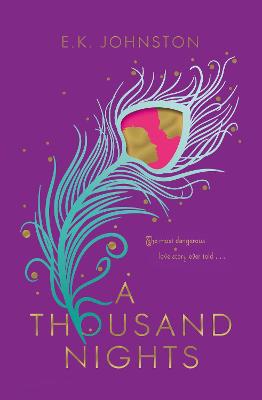Reviewed by jeannamichel on
E.K. Johnston created something profound, yet so simple. Readers will be hooked from the start with its quick plot. Every night, when Lo-Melkhiin joined her—even knowing the original story—I worried for her safety in surviving the night. Each morning, I would be holding my breath, wondering if she made it.
Though intentional, the absence of names irked me. Yes, readers are blessed with Lo-Melkhiin’s name but we are not given a name for our protagonist, nor anyone else. Johnston’s intent can vary between readers: an emphasis on the villain, leaving creative thinking to the readers.
The supernatural element was a surprise but interesting. A Thousand Nights circles around her, our protagonist, but I wish Johnston had told us more of Lo-Melkhiin and his daily thoughts. There was some change in perspective between chapters but not enough to quench my questions about this demon inside of him.
The plot moved quickly, enchanting readers with original and unpredictable twists and turns. It surely kept me on the edge of my seat. However, the writing, most specifically the dialogue, was disappointing. The story read like a winded monologue, as if someone was telling a tale which was both, distracting and fascinating. When there was dialogue, the monologue continued but—since there was a lack of names—the characters, instead, addressed their titles. For example, calling your sister “sister” is fine and realistic once but a bit annoying after the third or fourth consecutive sentence of “Yes, sister. I will do that, sister. You’re right, sister.”
Despite the writing, Johnston excelled in bringing the classic to life in a fresh way. A Thousand Nights forces readers to want another thousand nights, wondering what happens after the end.
Reading updates
- Started reading
- 21 September, 2015: Finished reading
- 21 September, 2015: Reviewed
